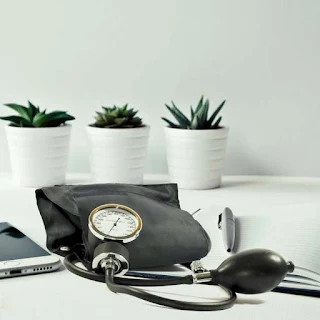15 Signs of High Blood Pressure: Recognizing the Silent Threat
Introduction:
High blood pressure, also known as hypertension, is a common health condition that affects millions of people worldwide. Often referred to as the "silent killer," it is essential to be aware of the signs and symptoms associated with high blood pressure. In this blog post, we will explore 15 warning signs that may indicate the presence of high blood pressure. Recognizing these signs is crucial for early detection and effective management of this potentially serious condition.
15 warning signs that may indicate the presence of high blood pressure
1. Frequent Headaches:
Persistent headaches, particularly in the morning, can be a sign of high blood pressure. If you experience severe or recurring headaches, keep an eye on your blood pressure levels.
2. Fatigue and Dizziness: Feeling excessively tired or experiencing dizziness without an apparent reason could be indicative of high blood pressure. Monitor these symptoms and consult a healthcare professional if they persist.
3. Blurred Vision: Suddenly experiencing blurry vision or difficulty focusing may signal high blood pressure. Seek medical advice if this occurs frequently.
4. Chest Pain or Tightness: High blood pressure can put strain on the heart, leading to chest pain, discomfort, or a feeling of tightness. If you experience these symptoms, seek immediate medical assistance.
5. Shortness of Breath: Difficulty breathing or shortness of breath, especially during physical activity, may be a sign of hypertension. If this persists, consult your healthcare provider.
6. Irregular Heartbeat: Palpitations or an irregular heartbeat might indicate high blood pressure. If you notice your heart beating rapidly or irregularly, it is essential to consult a doctor.
7. Nosebleeds: Although not always a direct cause, high blood pressure can contribute to frequent nosebleeds. Monitor their occurrence and consider blood pressure assessment if they become a recurring issue.
8. Flushed or Red Face: A persistent flushed or red face may be a sign of high blood pressure. If this symptom persists or is accompanied by other concerning signs, consult a healthcare professional.
9. Swollen Ankles:
Swelling in the ankles, feet, or legs can be an indication of high blood pressure. If you notice persistent or unusually severe swelling, seek medical advice.
10. Impaired Kidney Function: High blood pressure can affect kidney functionality, leading to changes in urination patterns or the presence of blood in the urine. Report any such changes to your doctor.
11. Difficulty Sleeping: Chronic insomnia or difficulty sleeping can be an indirect sign of high blood pressure. If you are experiencing these sleep disturbances, consider monitoring your blood pressure.
12. Increased Anxiety or Nervousness: High blood pressure can contribute to feelings of anxiety or nervousness. If you notice heightened levels of stress, consult your healthcare provider.
13. Brain Fog or Mental Confusion: Cognitive changes such as difficulty concentrating, memory problems, or experiencing brain fog may occur as a result of high blood pressure. Keep track of these symptoms and discuss them with your doctor.
14. Severe Fatigue after Exercise: Feeling excessively tired or exhausted after minimal exercise could be a warning sign. If you experience severe fatigue after physical activity, consult a healthcare professional.
15. Overall Weakness: Unexplained weakness or a general lack of strength may be symptomatic of high blood pressure. If weakness persists, seek medical evaluation.
Conclusion:
While high blood pressure is often symptomless, being aware of these potential signs can help in its early detection and effective management. If you experience any of these symptoms regularly, it is essential to consult with a healthcare professional. Remember, prevention, early detection, and proper management are key to reducing the risks associated with high blood pressure and maintaining a healthy life.
















0 Comments